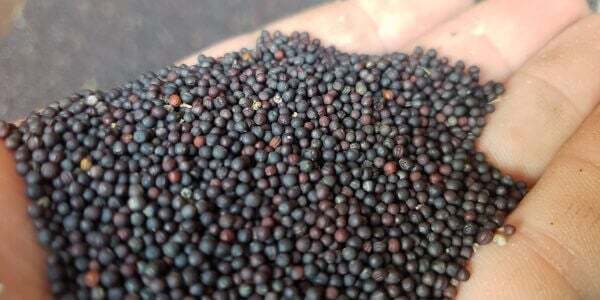
Trade wars are a common occurrence in the global market, and the friction between China and Canada is no exception. These conflicts are often fuelled by geopolitical issues. Back in 2019, China halted Canadian meat imports after Huawei’s CEO, Meng Wanzhou, was detained. Officially, China blamed banned feed additives in the meat, but many saw it as a diplomatic move in response to the Ottawa-Beijing rift.
Now, China is considering probing Canada for allegedly dumping canola into its market. In the realm of international trade, dumping refers to selling a product at a lower price in a foreign market than in the domestic one, essentially a form of price discrimination. Following Canada’s imposition of a 100% tariff on electric vehicles and a 25% tariff on steel and aluminium from China, effective October 1, 2024, China has retaliated. This move is a clear response to the tariffs on electric vehicles.
Trade tensions between nations can significantly disrupt global commerce. My earlier research highlighted how trade tensions between Canada and the United States during Donald Trump’s presidency adversely affected trade, especially in the agri-food sector. The mere threat of an anti-dumping duty can deter imports, making anti-dumping laws a non-tariff barrier, even if the duty isn’t imposed. Although China has only announced a dumping investigation, canola oil futures prices are already feeling the impact.
As members of the World Trade Organization (WTO), Canada and China must ensure their trade policies align with WTO regulations. Within the WTO framework, members can address dumping to safeguard their domestic markets. However, such measures must adhere to WTO protocols, including filing complaints through the organization’s dispute settlement mechanism.
The WTO’s Anti-Dumping Agreement specifies how countries can respond to dumping. In this scenario, China would need to demonstrate that Canada is dumping canola, quantify the extent of the dumping, and show that it is harming or threatening Chinese canola farmers. If China’s investigation finds evidence of dumping, it can impose anti-dumping duties. These duties are applied when dumping is proven and shown to have harmed the domestic industry. The potential imposition of these duties could severely impact Canada’s Canola exports to China. This would have serious consequences for Canadian farmers, who depend heavily on international markets to sell their products.
In 2023, Canada exported 90% of its canola production, totalling $15.8 billion in canola seed, oil, and meal. China, the second-largest importer after the US, accounted for $5 billion of these exports, nearly one-third of Canada’s total canola export value. China is the top market for canola seed, while the US leads in canola oil and meal. Canola is mainly exported to China as seed rather than processed products. From 2014 to 2018, exports to China were stable, but a sharp decline in canola seed exports began in 2019 and continued through 2023.
The decline in canola exports coincides with diplomatic tensions between Canada and China, highlighting how trade disputes can severely impact bilateral trade. This ongoing trade war could be devastating for canola farmers, as China accounts for about 65% of Canada’s canola seed exports.
Moreover, Canada’s canola exports lack diversification, relying heavily on just four countries: the US, China, Mexico, and Japan. In 2023, these countries made up 98% of Canada’s total export value. The US led with $8.6 billion (54%), followed by China with $5 billion (32%), Mexico with $1 billion (6%), and Japan with $883 million (5.6%).
Canada’s heavy reliance on a few key markets increases its vulnerability to trade disruptions. Should China impose anti-dumping tariffs, Canadian canola could become uncompetitive in the Chinese market, potentially causing Canada to lose 30% of its canola export value to other suppliers. Like many developed nations, Canada aims to protect its domestic market from the influx of low-cost Chinese products, such as electric vehicles. However, Canada must tread carefully, especially when adopting trade policies from larger economies like the US and the European Union.
These larger economies have more leverage in international trade negotiations, unlike Canada, which is a smaller, open economy and faces greater risks in a trade war with China.
Furthermore, to support a rapid transition to a green economy and help Canada achieve its climate goal of 100% zero-emission vehicle sales by 2035, it is crucial that electric vehicles become more affordable for the average Canadian.Rather than escalating trade tensions with China, Canada should consider alternative measures like safeguards or tariff rate quotas on Chinese electric vehicles. These approaches could be mutually beneficial and less likely to trigger retaliatory actions.
Imposing a high tariff on Chinese electric vehicles could negatively impact other Canadian sectors that depend on Chinese buyers. Canada must proceed cautiously to avoid jeopardizing jobs in the agricultural sector while attempting to protect those in the automobile industry. Canola farmers, in particular, would likely bear the brunt of Canada’s unilateral tariff on China. Other sectors could also be targeted, as China would likely retaliate by imposing similar measures on its own exports. Canada must work to minimize diplomatic tensions and avoid trade wars with major global market players, as such conflicts are becoming increasingly common. Recent trade disputes, including those with the US during the NAFTA renegotiation, Saudi Arabia over human rights issues, and China following the detention of a Huawei executive, can significantly undermine Canada’s export competitiveness.